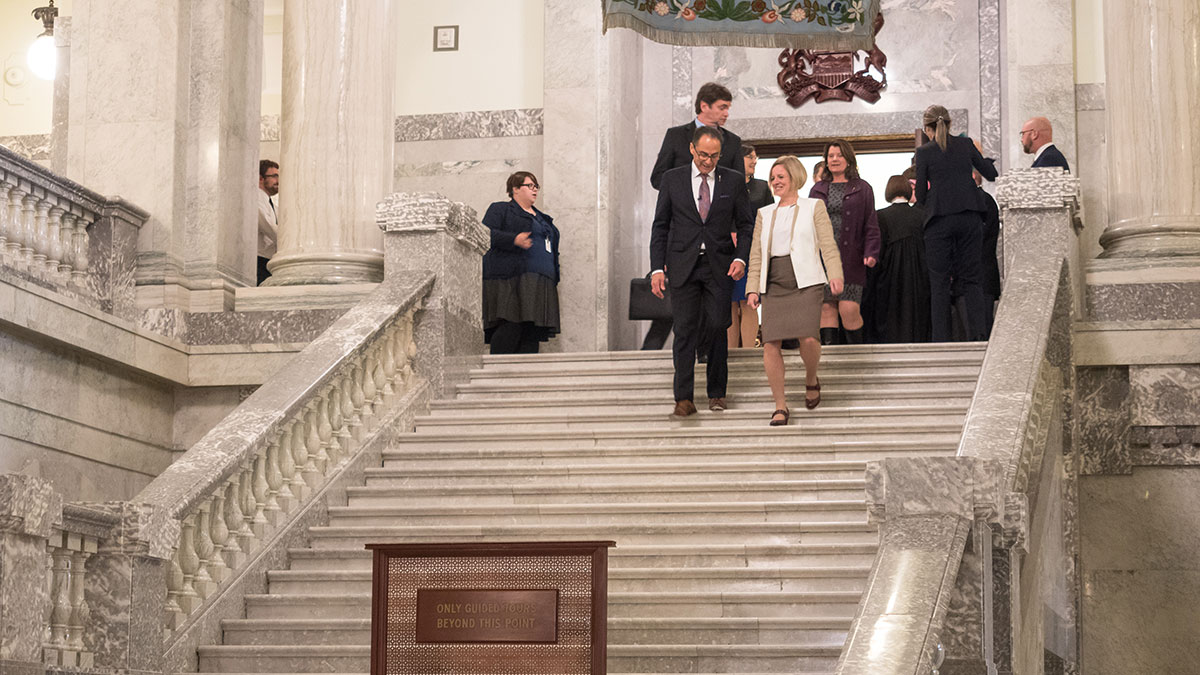New Notley budget coming in April, likely to impact students
 Ab Sch
Ab SchWhile students won’t have to worry about increases in taxes or tuition, they may notice changes around the province as the Government of Alberta prepares to run the largest deficit in its 111-year history.
Almost a year after their historic election into office, Premier Rachel Notley and the New Democratic Party (NDP) provincial government will release the 2016 financial blueprint on April 14. Though finance minister Joe Ceci said the budget’s primary aim is to diversify the economy and free the province from the “oil-price rollercoaster,” it is unclear what initiatives will be implemented and how much they will cost taxpayers.
Though it is hard to say what will and will not be included in the budget, Bob Ascah, the director of the Institute for Public Economics, agrees with most commentators that the province will run a $10.4 billion deficit.
“Across the province, on campus and off campus, things will be very, very tight for the next few years,” Ascah said.
On March 7, government house leader Brian Mason said Albertans can expect a budget focused on job creation, economic diversification and provincial market expansion. For Ascah, the emphasis on these three points reveals a naïve idealism on the part of the NDP government.
“Diversification (in Alberta) is a little bit like the Holy Grail,” Ascah said. “The government recognizes that we have to get off this rollercoaster of natural gas prices going up and down, but … what are our options?”
Though politicians have not said what these three points might entail, Ascah said it would be logical for this diversification to come in the form of investment in intellectual resources and renewable energy, which would operate in tandem with the provincial carbon tax that will be implemented for the first time in 2017.
“We need to start investing in what’s in our minds, rather than what’s in the ground,” he said. “We need to focus on intellectual property and the capacity of universities to foster innovation.”
Despite this, one of the public institutions that will likely fall victim to provincial restraint measures will be the University of Alberta. Students will not be directly impacted by budget cuts because of the tuition freeze, but may notice a deterioration in the quality of the resources they are paying for. According to Ascah, infrastructure spending will be the first thing the university will seek to cut.
“I’m almost certain library hours and transit hours (will) be cut back, and there will be issues around attracting professors to come and work here,” he said. “It’s already very difficult to run a university efficiently, but in the next few years, it’s going to become an enormous challenge.”
Ascah said it is important to remember the province cannot control the price of oil and natural gas, exchange rates, how stock markets perform or how pension fund liabilities fluctuate. According to him, the government is “desperate” to appear to be creating jobs and helping spur the economy in order to appease a dissatisfied public. In a free market economy, however, there is only so much they can do.
“The government and the Finance Minister have to manage the expectations of the population, and they have to be more frank with … the public on what (they) can and cannot do,” Ascah said.
“You can sense that (Notley) is frustrated that she’s inherited such a financial mess. There’s just no money for them to spend on initiatives that are socially progressive. They’re in such a difficult situation.”




